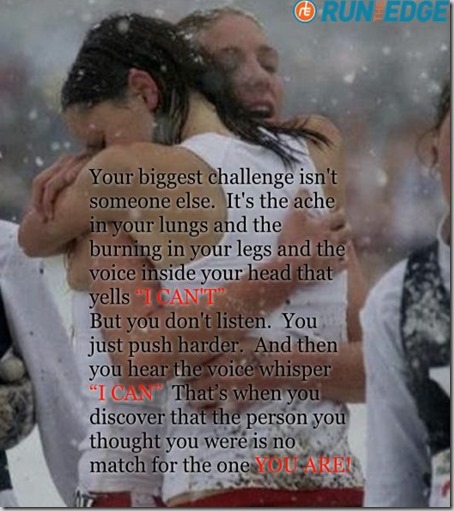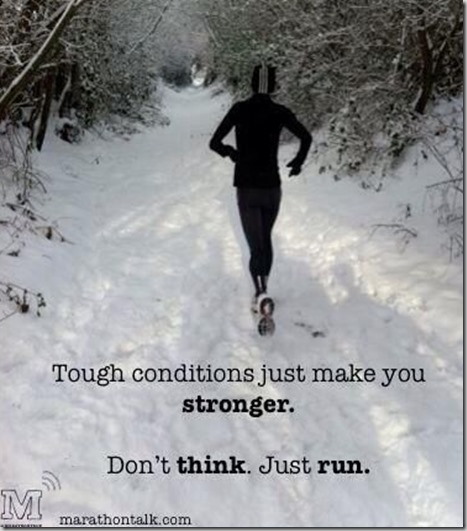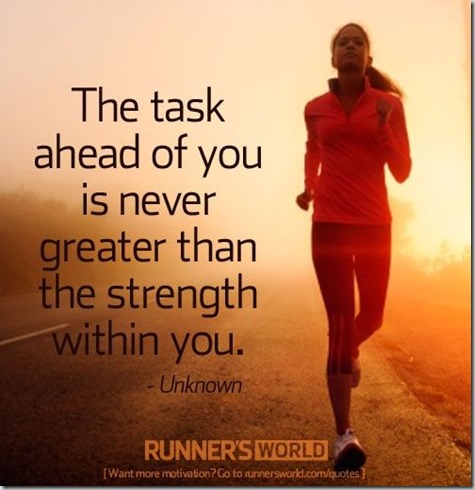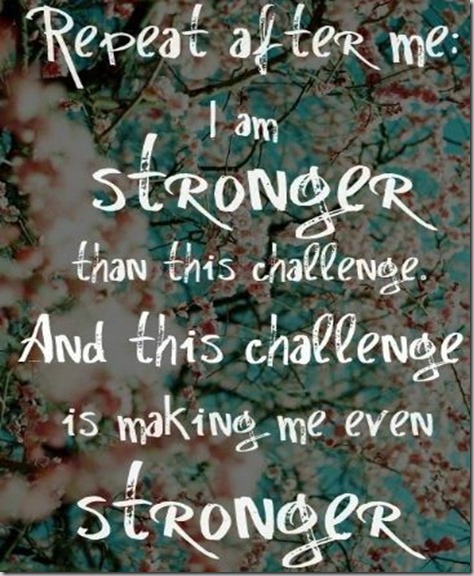I recently read Kara Goucher’s recap of her New York City marathon back in November, 2014. If you ran that marathon you know the wind that day had to be factored into any planned pacing strategy.
I feed off the determination and strength of our elite runners, often wondering if they ever hit the wall because they seem to just keep going no matter how beat up they look. Kara’s recap, as is most of Kara’s writing, makes her seem more like one of us average marathoners, suffering the way we do along the marathon road with feelings of defeat and disappointment. To read the complete account of her 2014 race, go to Kara Goucher A Bitter Sweet Return. In the meantime, I’ve summarized some key points that might prove helpful the next time we embark on that 26.2 mile journey with a desire to reach the finish line with a goal time in mind.
Kara hit the wall and struggled to finish. We don’t hear that often coming from an elite athlete. They make it look so easy most of the time. She went into NYC fit and ready to run a 2:28 marathon which was a 5:40 pace in good weather conditions.
The weather conditions were not going to be good. Even after discussing the 20 – 30 mph winds with her coaches they decided she should stay with the lead pack thinking everyone would be forced to adjust based on the wind.. That didn’t happen. The lead women were tough and ran the first 6 miles at about a 5:36 pace, only* 4 seconds faster than Kara’s master plan. At that point, she thought she would still be ok.
*I say only 4 seconds because it doesn’t seem like much does it? Read on…
Kara didn’t feel that the 5:36 pace was dangerously fast but when she felt the pressure from the pack to increase the pace at mile 9 to 5:29, (11 seconds faster than planned), she knew it meant trouble. She hadn’t practiced at that pace plus running into the wind made that 5:29 more like a 5:20 pace effort, 20 seconds faster than planned.
At the 18 mile point she saw other stray lead women runners and played "catch-up" as best she could. At mile 22, she felt the strain on her body and struggled to keep moving forward. With encouragement from other elites, e.g Deena Kastor she continued and was in search of her coach at mile 24 to get her through this race. Kara was so engrossed in giving it all she had to fight the wind, the fatigue, that she didn’t see her coach and ran right by him. At the 25 mile mark, she asked herself that question that the rest of us ask at about the 20 mile mark…How far do I have to go? Kara crossed the finish line wondering how she managed it and feeling the most exhausted she has ever felt. Needless to say, she was extremely disappointed. But as Kara so respectfully does, she soon put everything into perspective, evaluated her performance and stood tall knowing that she has bigger and better accomplishments in her future.
We can never bank on race day, no matter how hard we train nor how prepared. It is one single unique day which could be the one we dream of or it could be the one that gives us nightmares. We do the best we can and that’s the only control we have.
Valuable Take Away:
For me, the key point in Kara’s detailing of how things fell apart was the seemingly miniscule increased race pace. I mean, what is 11 seconds or even 20 seconds for that matter? Apparently it’s a lot. When I begin my run in Hopkinton to Boston on Monday April 20th, and I take off feeling great, feet flying over those initial 3 to 4 miles at a pace 30 to 45 seconds faster than I can run a marathon (so easy to do on that Boston course), I better realize I may have blown my race. *That’s the past. This year, my focus is on NOT making the same mistake.
I’m a firm believer in taking chances. If we don’t take chances we’ll never know what we are capable of however, being realistic in the kind of risk we are taking is paramount to success. It’s unwise to think any runner can put "time in the bank" at the beginning of the race. Starting out slow puts ENERGY in the bank, enabling our body to take on fluids and digest carbohydrates early in the race before our system redirects it’s focus to using what ever energy source it can find to keep us going.
In addition to the pace factor, Kara made me realize that even the elites are not immune to the wrath of the weather. Next time I or any of you beat yourself up for not performing the way you thought you would, look at all the factors. Maybe you did pace right for your training but not the right pace for the external conditions.
One other point I hope to use when the going gets tough out there on my next 26.2 mile route, is that no matter how exhausted I’m feeling, I’m not alone. I’m not the only one wanting to stop and walk. I know those 2 1/2 hour marathoners are going through the same kind of challenge. The difference? Their mental toughness. If I can grasp that and know that I can be just as mentally tough (nothing I can do about my running genes but I can do something about my determination) then I can reach that finish line to the best of my ability.
To Kara Goucher and all those other elite runners who put it all out there and tell us what REALLY goes on at the front of the pack, thank you. Thank you for being human, for being one of us average "Joe’s" who will forever be in awe of your ability.
Who really motivates you? Who can get you over those challenges when you think you should quit?







“I am stronger than this challenge and this challenge is making me even stronger.” Just what I needed to read before running my first 50 mile race – thanks! I can’t wait to read your Boston report! I know it’s going to be a great one!
Best of luck Tina. You’ll meet the challenge of that 50 miler. You’ve done the training and you’re ready.